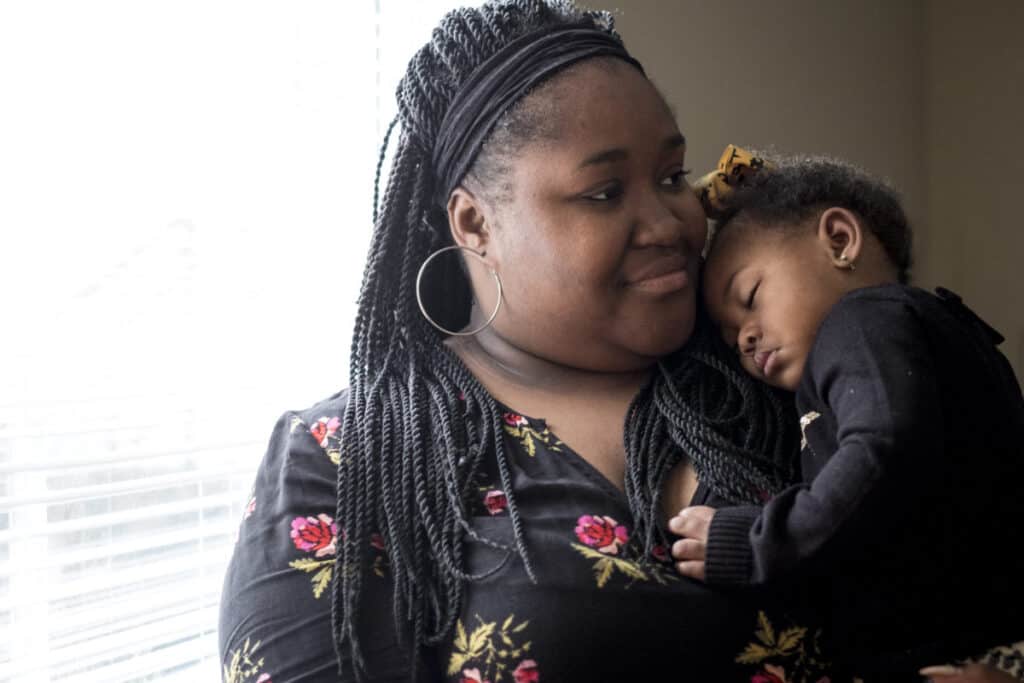If your child didn’t get Early Intervention, but you’re worried about their development, you may not know what to do next. Your child was probably referred to Early Intervention because you or someone else who knows your child well is concerned about their development. But not every child qualifies.
If your child was evaluated by EI and didn’t qualify, you have options.
- Appeal EI’s decision
- Look for services on your own to support your child and your family (they may be covered by insurance, or you may have to pay)
- Wait and apply again in a few months if things change
Read on to learn more about each of these options.
Option 1: You can appeal the decision
- Start with your EI Intake Coordinator. Talk with them about why you believe your child should qualify.
- You can ask if your child might qualify based on “informed clinical opinion.” (Use that term!) This means the evaluator can use their judgment and consider other information that was not in the formal evaluation.
- Speak to the EI Program Director if your child does not qualify based on informed clinical opinion.
- Get more information. Talk to your child’s doctor. Ask for a developmental screening or a more complete evaluation. Remember, you know your child better than anyone. There may be some other tests that will confirm your concerns.
- If you think your child should qualify and your EI program still disagrees, you can file a complaint. You may need to write a letter describing your complaint. If you have suggestions for resolving the problem, include them in your letter.
**********
Louisiana:
Filing a formal complaint
You may put your complaint in writing or call your OCDD Regional Office. Your complaint has to be made within a year of when you got the decision from Early Steps (Louisiana’s Early Intervention program). You will need to include:
- A statement that the state has violated a requirement of Part C of IDEA (the law that governs EI and special education)
- Information about your complaint (in this case, that you believe your child should qualify for EarlySteps but did not)
- Your name, address, and phone number, plus your child’s name and birth date
EarlySteps is required to resolve your complaint within 15 days. They will mail you a decision letter explaining their findings and the reason for the decision.
Finding your own services
To find local services like parent support, different therapies, or inclusive recreation activities, see our Louisiana Disability Services Finder (en español)
**********
Massachusetts:
Filing a formal complaint
Call the Department of Public Health Division for Early Intervention at (617) 624-6060. They can tell you about your rights and options, including:
- Mediation: a trained mediator will help you and the EI program resolve your disagreement
- Due process hearing: a more formal process where a hearing officer will make the decision about your child’s eligibility
Finding your own services
To find local services like parent support, different therapies, or inclusive recreation activities, see our Massachusetts Disability Service Finder (en español).
**********
Option 2: Find other services to support your child and your family
Think about what other kinds of support you need. Activities for your child? Counseling for family members? Speech therapy? (Learn more about different kinds of therapies here).
Ask your Intake Coordinator what other services you can get. There are lots of supports that you can get, especially if you have Medicaid insurance.
Your Intake Coordinator should be able to tell you about:
- Other community programs and activities that might benefit your child or family
- Ways to make sure your child gets regular developmental screenings
- EPSDT Program: This stands for Early Periodic Screening, Diagnosis and Treatment. This program means Medicaid covers some medical costs related to your child’s condition. This includes regular diagnostic screenings and treatment, plus preventive care like teeth cleaning. (See what else is covered by EPSDT).
- Other benefits you may be able to get through Medicaid or private health insurance
Option 3: Keep track of your child’s development and apply again later if they still need it.
If you applied for Early Intervention, you had a reason to be concerned. Your child may qualify at a later time and you can re-apply down the road.
Here’s what you can do now:
- Watch your child closely as they grow and learn new things. Keep track of how they develop. Take notes or even videos
- Learn what to look for to make sure your child stays on track. Learn about developmental milestones. You can look up what your child should be doing at a certain age
- Talk to other adults who see your child regularly: teachers, caretakers, doctors, or other parents. Be open to their opinion of how your child compares with others their age
- Take your child to regular check-ups and tell the doctor any concerns you have
- Ask the doctor for a developmental screening and an autism screening. These should be done when your child is 9 months, 18 months, and 24 months old. You will have to fill out a questionnaire about your child, and the doctor will test for certain skills
If your child didn’t get Early Intervention at first, don’t give up on finding the support you think they need. Just remember that children’s brains change so quickly in their first few years of life. Getting support early on is the best way to steer their development in the right direction.
Learn more:
Find community-based therapists near home:



